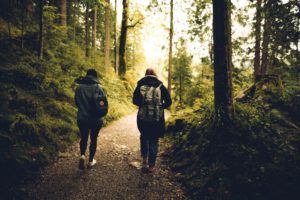Peer supporters have walked a road through trauma, addiction, mental health conditions or other disabilities. We have made it to another side. On the road, we gained experiential knowledge – understanding you can’t learn from a textbook. Our stories give us a unique ability to empathize and build trust with others who are on a similar road.
I came into the CMWN’s peer training with fears and self-doubt. Do I know enough? Am I far enough in my own recovery to do peer work? Can I sustain my wellbeing in a role that will be hard at times? These were answered with practice. I was able to learn wellness tools and peer counseling skills, dipping my toes in the water before diving into my job. The training met me where I was at and empowered me.
The experiences I shared with other peers in this training offered deeper answers to my fears. In peer relationships, we are not alone. We connect with each other’s pain, fear and self-doubt. We are part of the strength it takes to change and overcome. Each of us brings hope in our own way as we take up our challenges with courage.

The training rooted us in a recovery lens that looks at people through the eyes of empathy and hope, strengths and resilience. Recovery is still a new mindset in our society, and it’s not embraced everywhere. Peer communities like the Colorado Mental Wellness Network (CMWN) exist because people challenged the status quo, changing the way our society sees and treats people with mental health conditions.
How lucky I am to do this – and to be part of a community that believes in recovery.
Carrie Baatz is a Peer Support Specialist at The Independence Center in Colorado Springs.
She writes about mental and spiritual healing at www.carrieannb.com
